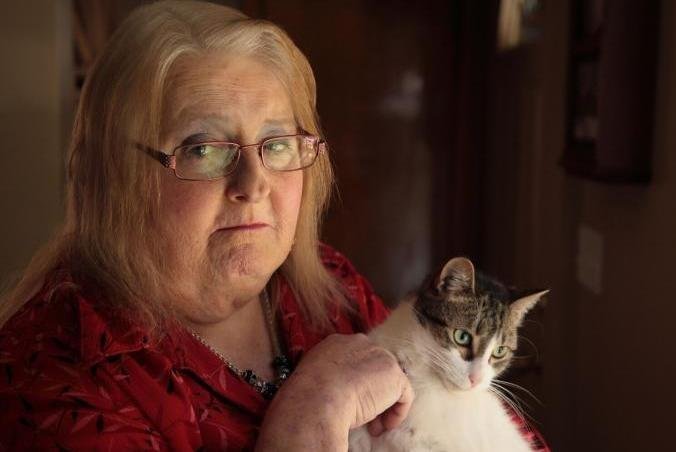The U.S. Equal Employment Opportunity Commission reached a settlement on behalf of the estate of Aimee Stephens with the funeral home that fired her after she came out as transgender. File Photo by Charles William Kelly/ACLU
Dec. 2 (UPI) -- A federal judge signed off on a settlement between the estate of Aimee Stephens and the funeral home that fired her after she came out as transgender.
The U.S. Equal Employment Opportunity Commission announced that it reached the settlement on behalf of Stephens' estate with her former employer, R.G. & G.R. Harris Funeral Homes, which agreed to pay a total of $250,000.
The EEOC said that Harris agreed to pay $130,000 in back pay and compensatory damages to Stephens' estate and $120,000 in attorney fees.
It will also pay a total of $3,705 in clothing benefits for the period of September 2012 to the present divided among approximately 17 "female front-facing employees" as well as providing anti-discrimination training, revise its anti-discrimination policy and implement new procedures for handling discrimination complaints.
"The law is now clear that discrimination against an employee because of his or her transgender status is sex discrimination," EEOC trial attorney Dale Price said. "Employers also cannot discriminate on the basis of sex with regard to providing employees with clothing benefits."
Stephens was fired from her job as an embalmer at the funeral home in 2013 after six years of employment upon informing her boss that she was transgender and planned to begin wearing appropriate women's business attire to work.
Thomas Rost, the owner of R.G. & G.R. Harris Funeral Homes, said she was fired for failing to comply with the company's dress code.
The EEOC filed a lawsuit on Stephens' behalf, arguing her firing violated Title VII of the Civil Rights Act of 1964, in June the U.S. Supreme Court ruled in favor of Stephens, stating Title VII protects LGBT workers from employment discrimination.
Stephens died in May at the age of 59 due to complications from kidney disease.















